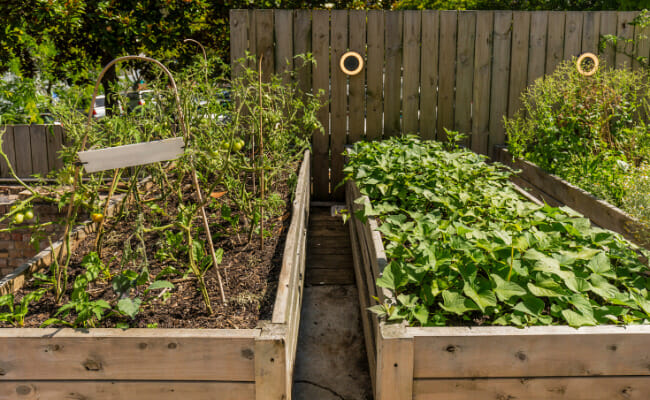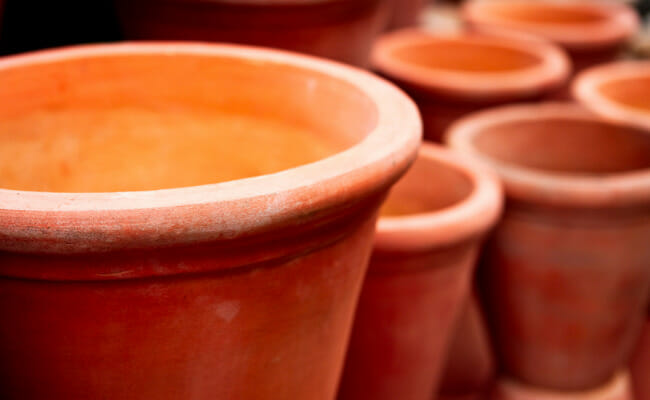A Home Edible Garden: Here’s What You Need to Know to Get Started
Every person should reap the numerous therapeutic and preventative advantages of indulging in gardening. Spending time in the garden cultivating plants and producing one’s own food may be very satisfying for those with impairments, the elderly, and youngsters. A beautiful and functional garden for growing food can be designed and built with a little forethought and effort and can act as an impeccable therapy session.
The term “edible garden” refers to a garden whose flowers, herbs, seeds, berries, and other plants are actually edible and can be used in meals. Your edible garden can be little or enormous; it depends on your liking. It is best to get started with a little garden by planting a few herbs in a window box or a few pots.
Tips to maintain and grow a healthy edible garden at your home

Here are some tips to ensure you are on the right path to growing a healthy edible garden in the comforts of your home.
Sunlight
The fact that your residence is in a location that gets very little sunshine may be the single largest obstacle when it comes to growing a fruitful and healthy garden. Most plant life uses photosynthesis, which is only possible in the presence of sunlight, to generate energy.
Sun is essential for the growth of vegetables, blooming fruits, and popular Mediterranean herbs, including basil, sage, rosemary, and thyme. Plants that don’t get enough light to grow lanky as they stretch their frail stems upwards toward the sun, and the leaves become pale yellow, or the plant stops growing altogether.
Soil
Cultivating your own food at home has several benefits, including the fact that you will have a much better idea of whether or not the soil is organic and what kind of nutrients it contains as you plant. The first and most important task you should do is to invest in some high-quality potting soil. Combine composts like manure and worm castings for a big garden. The soil is what gives the plants their strength by supplying them with nutrients, so make sure it is qualitative.
The Measurement of the Pot
When you stop and think about it, plants really weren’t designed to thrive in containers. If you keep your plant in a container, choose the largest pot possible; you’ll need a deep and a broad pot for the best results. Root-bound plants can cease growing or become unhealthy looking as they deplete the soil of its nutrients.
So, the next thing to consider is how much soil or potting mix you put inside the container. Don’t be stingy by using half the pot; be generous! The rule of thumb is to fill the container up to the midway point with the medium. Additionally, remember that watering the soil causes it to shrink.
Pick Plants That Are Simple To Raise
Wait a few years before planting anything flashy like giant leeks, Romanesco broccoli, or heirloom watermelons, no matter how beautiful they seem in seed catalogs. Instead, go for the types of crops that are both prolific and simple to cultivate.
You can’t go wrong with tried-and-true favorites like snap peas, radishes, salad greens, kale, tomatoes, and zucchini. To learn what seeds might thrive in your area or what pot might be suitable for your plants, you should go through a catalog from a business that is located in your area.
Irrigation
One of the most common causes of plant death in edible gardens is insufficient irrigation, particularly in container gardens. The plants dry out more rapidly if you grow them in smaller containers.
Constantly assessing the soil’s moisture level is essential. If you want your plants to benefit from the light all day long, watering them first thing in the morning is a must. One strategy to ensure the continued growth of your edible garden is to install an automatic drip watering system.
Have a positive mindset when you tend to your garden. Don’t get too hard on yourself if a harvest fails. Carry out some study and make an effort to discover what went wrong to learn how to prevent the issue from occurring again in the future. Competent gardeners have spent years refining their skills and are constantly willing to experiment with new approaches. Gardening is for peace of mind, so don’t let it become a source of stress.



